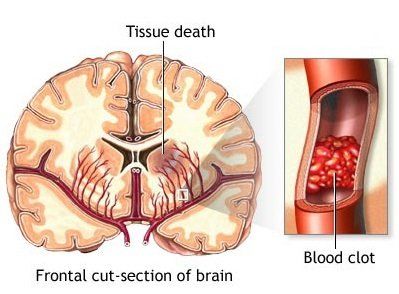Stroke Treatments
in Daytona Beach, FL
Strokes are potentially debilitating. If you have had a stroke it the past, but are not sure why or you are worried if you are at risk for one we can help.
No one plans on having heart problems, but if you do you need to find a doctor you can trust. At Complete Cardiology Care we staff Cardiologists and Electrophysiologists that treat patients with strokes in Daytona Beach, Ormond Beach, Palm Coast, Deltona, Deland, and the surrounding areas.
Every 4 minutes
Someone dies from a stroke
795,000 people
Every year have strokes in the U.S.
610,000 of those
First time stroke

What is a stroke?
A stroke, sometimes called a brain attack, occurs when something blocks blood supply to part of the brain or when a blood vessel in the brain bursts. In either case, parts of the brain become damaged or die. A stroke can cause lasting brain damage, long-term disability, or even death.
What Happens During a Stroke?
If something happens to block the flow of blood, brain cells start to die within minutes because they can’t get oxygen. This causes a stroke.
There are two types of stroke:
- An ischemic stroke occurs when blood clots or other particles block the blood vessels to the brain. Fatty deposits called plaque can also cause blockages by building up in the blood vessels.
- A hemorrhagic stroke occurs when a blood vessel bursts in the brain. Blood builds up and damages surrounding brain tissue.
Both types of stroke damage brain cells. Symptoms of that damage start to show in the parts of the body controlled by those brain cells.
Reduce your stroke risk today
If you are curious how we can help you evaluate your stroke risk, please reach out to us. We are currently accepting new patients. Complete Cardiology Care staffs Cardiologists and Electrophysiologist that serve patients in Ormond Beach, Daytona Beach, New Smyrna Beach, Port Orange, Deltona, Deland, and the surround areas.
Our Cardiologists and Electrophysiologists take nearly all insurances. We accept Aetna, AARP Medicare Complete, Blue Cross / Blue Shield, Cigna, Florida Healthcare, Florida Hospital Care Advantage, Freedom Health, Health First Health, Humana PPO - out of network benefits apply, Medicare, Optimum Healthcare, Railroad Medicare, Tricare, United Healthcare, VHN, Wellcare.
We are also a partner with the VA and are proud to serve those who have served our country!
Self Pay Cardiology services are available too! Call and ask for our price list.

